#cognition enhancer
Explore tagged Tumblr posts
Text
The Genius Wave Downloads

Buy now
I recently purchased The Genius Wave Downloads, and I have to say, it has been a game-changer! From the very first session, I noticed a difference in my focus, creativity, and overall mental clarity. The audio quality is exceptional, and the soundscapes are both soothing and invigorating.
One of the things I love most about this product is how effortlessly it integrates into my daily routine. Whether I’m working, meditating, or just unwinding, The Genius Wave helps me get into the right mindset. The binaural beats and brainwave entrainment technology really work—I’ve experienced noticeable improvements in productivity and problem-solving.
Another great aspect is the variety of downloads available. There’s something for every mood and goal, whether you need to relax, boost motivation, or enhance concentration. After just a few weeks of use, I feel more energized and mentally sharp.
Overall, The Genius Wave Downloads exceeded my expectations. It’s perfect for anyone looking to enhance cognitive function, reduce stress, and tap into their full potential. I highly recommend it to students, professionals, and creatives alike. If you're looking for a simple yet effective way to boost brainpower, this is it!
Buy noe
#Mind hacking audio#Subliminal brain training#Alpha wave stimulation#Genius mindset activation#Law of attraction audio#Theta wave meditation#The Genius Wave audio#Brainwave entrainment program#Binaural beats for focus#Neuroscience sound therapy#Meditation and brain enhancement#Cognitive boosting audio#Self-improvement audio tracks
2 notes
·
View notes
Text
Sharper Focus and Clearer Thinking: My Experience with NeuroActiv6
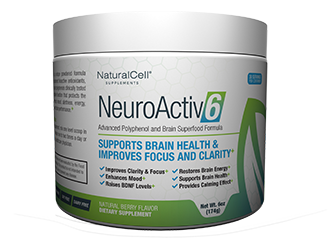
I Use NeuroActiv6 for a Cognitive Boost
For years, I'd struggled with brain fog and a general lack of focus. Juggling work, family, and personal commitments left me feeling mentally drained, and it impacted my productivity and overall well-being. I tried various strategies to improve my cognitive function, from getting more sleep to implementing focus techniques. While these helped to some extent, I still felt like I was operating at less than my full potential.
Natural Ingredients Backed by Science
That's when I came across NeuroActiv6. What initially drew me to this supplement was its focus on natural ingredients, all supported by scientific research. I'm wary of synthetic solutions, and NeuroActiv6 boasts a blend of vitamins, superfoods, and nootropics – all designed to support cognitive function. Some of the key ingredients include Ashwagandha, known for its adaptogenic properties, Citicoline, which plays a role in brain cell health, and Lion's Mane mushroom, which has been linked to improved memory and focus. The fact that NeuroActiv6 is FDA-approved further instilled confidence in its safety and efficacy.
Enhanced Focus and Improved Memory
Since incorporating NeuroActiv6 into my daily routine, I've noticed a significant improvement in my cognitive function. My focus has become noticeably sharper. I'm able to concentrate on tasks for longer periods without getting easily distracted. This has been a game-changer, especially when it comes to tackling complex projects at work. Additionally, I've experienced a positive impact on my memory. Recalling information feels easier, and I'm less prone to forgetting important details.
Reduced Brain Fog and Increased Mental Clarity
One of the most welcome changes I've experienced is a reduction in brain fog. That sluggish, foggy feeling that used to cloud my thinking is mostly gone. In its place, there's a newfound sense of mental clarity. I feel more alert and engaged throughout the day, which has improved my overall mood and energy levels.
Finding the Right Supplement for You
It's important to note that everyone's experience with supplements is different. What works for me may not necessarily have the same effect on you. However, if you're looking for a natural way to support your cognitive function, I highly recommend giving NeuroActiv6 a try. Just remember to consult with your doctor before starting any new supplement, especially if you have any pre-existing health conditions.
#neuroactiv6 benefits#natural cognitive enhancers#improve focus naturally#nutrition#workout#boost memory naturally#reduce brain fog naturally#nootropic supplements#brain health supplements (FDA-approved)#brain fog solutions#natural nootropic stack
2 notes
·
View notes
Text
Multiple efforts across the DoD explore technology-based means of cognitive enhancement. These techniques vary widely in terms of development, methods of application, and cost but should be considered part of an overall cognitive dominance strategy. For example, transcranial electrical stimulation (TES) enhances brain signals to mimic brain waves found during deep, restorative sleep to improve sleep quality. Thus, use of TES in a sleep deprived environment could allow soldiers to gain more restorative effects from brief periods of sleep to enhance cognition.
7 notes
·
View notes
Text
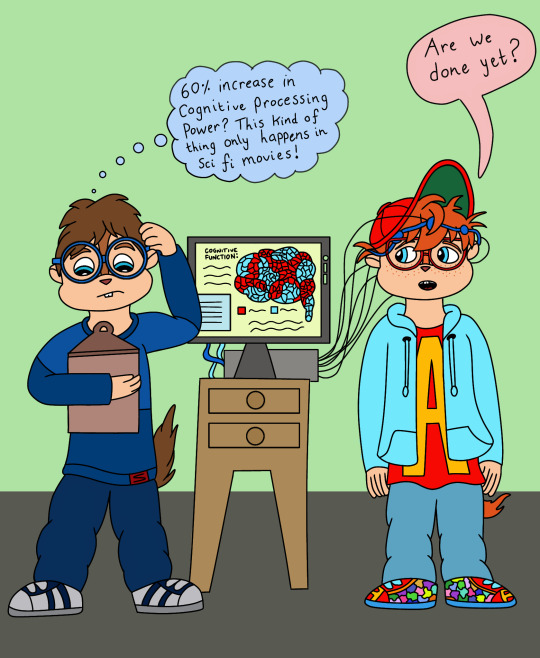
Really old art from back when Simon was trying to figure out how Alvin 2.0 could possibly exist.
#alvin and the chipmunks#alternative universe#alvin 2.0#smarter#cognitive enhancement#digital arwork#digital fanart
4 notes
·
View notes
Text
Eight Main Benefits of Nootropic Peptide Selank
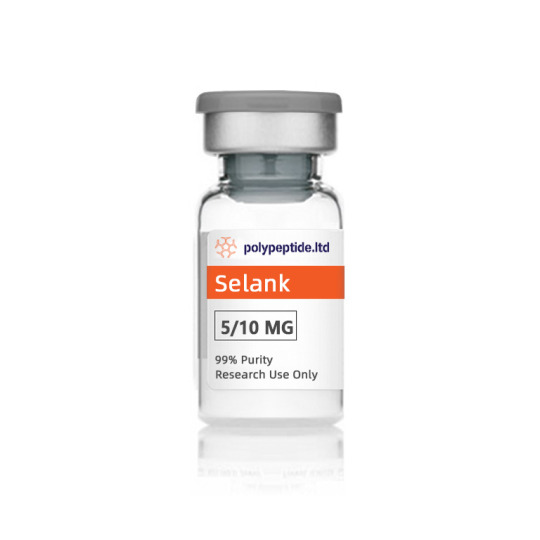
1.What is Selank?
Selank is a synthetic analogue of tuftsin, designed to be short in length. It possesses remarkable anti-anxiety properties, as well as the ability to enhance memory and learning. Additionally, Selank has demonstrated beneficial effects on pain perception.
2. How does Selank work?
Selank, a regulatory peptide, modulates various processes in the body. While it was previously believed that Selank directly affects GABA receptors and their binding to GABA, clinical trials suggest that Selank acts as an allosteric effector of GABA receptors instead.
Furthermore, Selank has been shown to stimulate the metabolism of neurotransmitters like serotonin and dopamine, thereby influencing the expression of genes related to neurotransmission in neuronal cells. Additionally, Selank promotes the expression of Brain-derived neurotrophic factor (BDNF), a protein important for neuronal survival and growth.
3. What are eight main benefits of nootropic peptide Selank?
Anxiety Reduction. Selank has been reported to possess anxiolytic properties, meaning it may help reduce anxiety. It is believed to interact with neurotransmitters in the brain, such as GABA, serotonin, and dopamine, which are involved in regulating mood and anxiety. By modulating these neurotransmitters, Selank may promote feelings of relaxation and reduce anxiety symptoms.
Mood Enhancement. Users have reported improvements in mood and emotional well-being when using Selank. It may help stabilize mood, increase feelings of happiness and contentment, and reduce negative emotions such as irritability or sadness. By influencing neurotransmitter levels, Selank may contribute to a more positive and balanced mood.
Cognitive Enhancement. Selank is often regarded as a nootropic due to its potential cognitive-enhancing effects. It may improve various aspects of cognitive function, including memory, focus, attention, and learning speed. Some studies suggest that Selank enhances the release and metabolism of neurotransmitters involved in cognitive processes, such as acetylcholine and dopamine, leading to improved cognitive performance.
Stress Reduction. Chronic stress can have detrimental effects on both mental and physical health. Selank may help mitigate the impact of stress by regulating stress hormone levels, such as cortisol, and modulating the stress response in the body. By promoting a more balanced stress response, Selank may reduce the negative effects of chronic stress and promote overall well-being.
Antidepressant Effects. While further research is needed, Selank has shown potential as an adjunct treatment for depression. It may act as an antidepressant by influencing neurotransmitters associated with mood regulation, such as serotonin and dopamine. By modulating these neurotransmitters, Selank may help alleviate depressive symptoms and improve overall mood.
Neuroprotective Effects. Some studies suggest that Selank has neuroprotective properties, meaning it may help protect neurons from damage or degeneration. It may support the survival and growth of neurons and promote neuronal plasticity, which is important for learning and memory. These neuroprotective effects of Selank could have implications for the prevention or management of neurodegenerative conditions.
4. Side effects of Selank?
Selank’s most frequent side effects are:
Anxiety
Headaches
Nausea
Dizziness
Fatigue
There are also some less frequently reported side effects of Selank, which include:
Insomnia
Irritability
Muscle cramps
Joint pain
Selank should be stopped if any of these side effects persist, or worsen.
5. What is the recommended dosage for Selank?
The recommended dosage for Selank can vary depending on several factors, including individual response, desired effects, and the specific formlof administration (subcutaneous injection or intranasal spray). It is crucial to consult with a healthcare professional or refer to reliable sources forl accurate dosage guidance.
While specific recommendations may vary, a commonly suggested dosage range for Selank is:
Subcutaneous Injection: the recommended dosage typically falls within the range of 100 to 300 micrograms (mcg) once per day.
Intranasal Administration (Nasal Spray): the recommended dosage generally ranges from 750 to 1,000 mcg once per day. If needed, this dosage can be divided into several smaller doses throughout the day.
#Selank#Nootropic Peptide#Eight Main Benefits#Polypeptide#Semax#popular peptide#Anxiety reduction#Cognitive enhancement#Antidepressant Effects
4 notes
·
View notes
Text
Eyes-Closed Training: Unlock Strength, Performance, & Function
Eyes-closed training
Eyes-closed training is a fascinating approach that can revolutionize your strength, performance, and overall functionality. By closing your eyes during exercises, you tap into a heightened mind-body connection and unlock hidden potential within yourself. This unique training method challenges your balance, stability, and coordination, leading to improved strength gains, enhanced athletic performance, and better functional movement patterns. Explore the transformative benefits of eyes-closed training and take your fitness journey to new heights. Read Full Post on Eyes-closed training to Click Here
#Eyes-closed training#Mind-body connection#Balance training#Coordination exercises#Sensory deprivation#Focus and concentration#Proprioception#Neuroplasticity#Enhancing athletic performance#Functional movement#Stability training#Body awareness#Cognitive engagement#Motor control#Closed-eye exercises
2 notes
·
View notes
Text
#health & fitness#beauty#business#fashion#home & lifestyle#revitol anti aging#bulk extreme bodybuilding#funny#cellulite removal cream#male enhancement#Brain Actives#Brain Actives Nootropics#Brain Actives is a modern food supplement#that is the best support for the brain#supplement is used during periods of increased mental and physical exertion#safe formula helps to strengthen and develop cognitive functions#Brain Actives food supplement was created using 10 ingredients#strengthens memory and concentration#speeds up the learning process#increases alertness and focus#Order Now
3 notes
·
View notes
Text
I didn't realize that this kind of executive dysfunction had a specific name in autism. In the psychiatric literature I usually see it called low/poor/impaired “task-switching,” “attentional switching,” or more broadly “cognitive flexibility.” But I do like the name “inertia” because IME that is often how it feels.
Autistic inertia is probably just as common in ADHD, and probably experienced in basically the same way. “No differences in EF [executive functioning] were found between individuals diagnosed with ASD and ADHD” in a meta-analysis study trying to tease out differences between them, including on tests of cognitive flexibility.
50%–70% of autistic people have ADHD, making the conditions very frequently comorbid. Both are also highly (genetically) heritable, and both involve (itself extremely heritable) executive dysfunction.
Improving your task-switching and overcoming inertia is probably best accomplished the same way that we treat other kinds of executive dysfunction: stimulants like Adderall, caffeine (especially taken with L-theanine), and Ritalin. After all, unmedicated kids with ADHD are worse at task-switching than neurotypical kids, but ADHD medication makes their task-switching equivalent. Ritalin “selectively enhanced the children's ability to rapidly and accurately switch between tasks.”
IIRC exercise, nutrition, and (especially) getting enough/consistent sleep also help to improve task-switching.
…and yes, I did write this post while struggling to switch to a different task. Namely, my actual job. Heh. Hooray for autistic inertia…
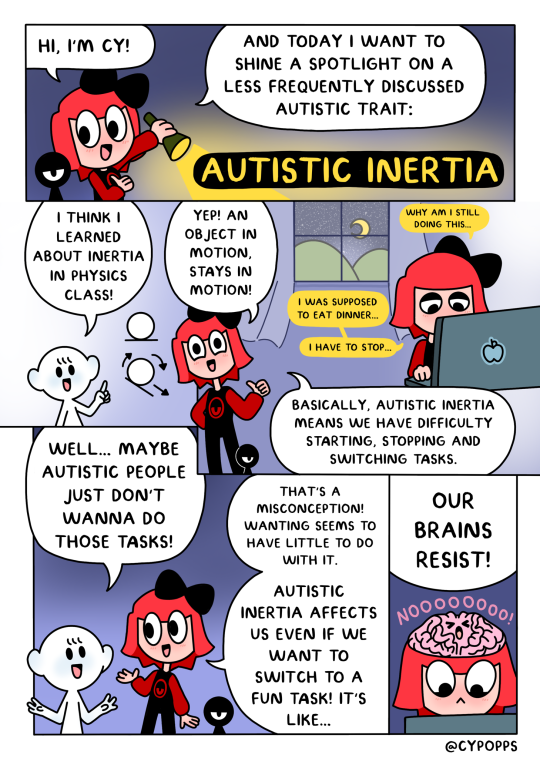
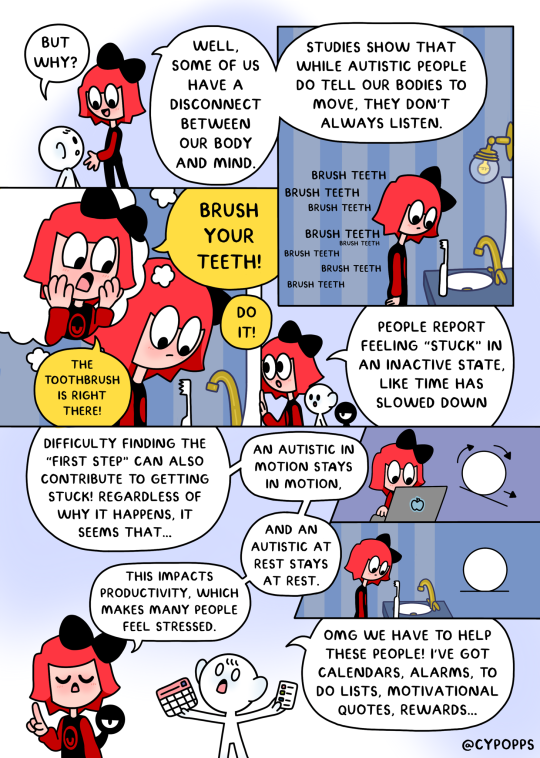
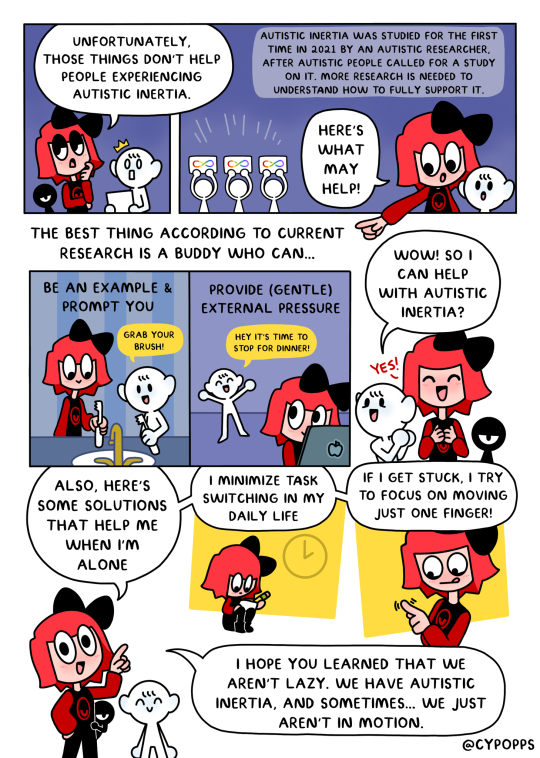
Autistic Inertia is an autism experience that makes it hard to start, stop, and switch tasks.
It somehow doesn't get talked about enough - so I made this comic!
YouTube • Instagram • Twitter
Also, if you want to read the research study I based this comic on, it’s right here!
#psychology#psychiatry#neurodivergence#autism#autistic inertia#ADHD#executive dysfunction#comic#original content#(in that I added to the post)#research#cognitive enhancement#stimulants#medication#caffeine#L-theanine#queue
59K notes
·
View notes
Text
By the way, you can improve your executive function. You can literally build it like a muscle.
Yes, even if you're neurodivergent. I don't have ADHD, but it is allegedly a thing with ADHD as well. And I am autistic, and after a bunch of nerve damage (severe enough that I was basically housebound for 6 months), I had to completely rebuild my ability to get my brain to Do Things from what felt like nearly scratch.
This is specifically from ADDitude magazine, so written specifically for ADHD (and while focused in large part on kids, also definitely includes adults and adult activities):
Here's a link on this for autism (though as an editor wow did that title need an editor lol):
Resources on this aren't great because they're mainly aimed at neurotypical therapists or parents of neurdivergent children. There's worksheets you can do that help a lot too or thought work you can do to sort of build the neuro-infrastructure for tasks.
But a lot of the stuff is just like. fun. Pulling from both the first article and my own experience:
Play games or video games where you have to make a lot of decisions. Literally go make a ton of picrews or do online dress-up dolls if you like. It helped me.
Art, especially forms of art that require patience, planning ahead, or in contrast improvisation
Listening to longform storytelling without visuals, e.g. just listening regularly to audiobooks or narrative podcasts, etc.
Meditation
Martial arts
Sports in general
Board games like chess or Catan (I actually found a big list of what board games are good for building what executive functioning skills here)
Woodworking
Cooking
If you're bad at time management play games or video games with a bunch of timers
Things can be easier. You might always have a disability around this (I certainly always will), but it can be easier. You do not have to be this stuck forever.
#actually autistic#executive dysfunction#neurodivergent#adhd#not news#hope#at least it's been very hopeful for me
70K notes
·
View notes
Text
CogniCare Pro
Welcome to the world of CogniCare Pro where enhancing cognitive health is our priority! As we age, maintaining mental clarity and sharpness becomes increasingly important, and that’s why we’ve crafted a unique formula tailored for men and women. With a foundation rooted in modern scientific research, CogniCare Pro stands out as a gentle yet powerful solution for your cognitive needs. Our…

View On WordPress
0 notes
Text
7 Best Brain Exercises to Sharpen Your Memory
Discover the 7 best brain exercises to improve memory, enhance cognitive function, and boost mental agility. Simple and effective techniques for a sharper mind. 7 Brain Exercises to Sharpen Your Memory Memory is one of the most valuable assets of the human brain. A sharp memory helps us learn faster, recall information quickly, and enhance cognitive function. However, just like our muscles, our…
#brain exercises#brain training#cognitive function#cognitive skills#focus improvement#improve memory#memory boosting techniques#memory enhancement#mental agility#sharpen memory
0 notes
Text
The Shocking Truth About Sleep: How It Supercharges Your Memory & Focus
You are probably sleeping inappropriately and it maybe ruining your brain. Hronic poor can make you feel foggy, forget things easily, and struggle to focus, no matter how much coffee you chug. A staggering 35% of adults do not get enough sleep, according to the CDC. Poor sleep is wrecking memory, killing creativity, and silently sabotaging career success. But what if I told you that sleeping…
0 notes
Text
#Brain boosting exercises#Cognitive performance exercises#Mental fitness activities#Brain power improvement#Exercises for focus and memory#Enhancing brain performance#Mental exercises for sharpness#Brain workout routines#Cognitive enhancement exercises#Memory-boosting workouts#Neuroplasticity exercises#Exercises for better concentration#Brain health activities#Physical exercises for brain function#Mind-body connection exercises#Improving mental clarity#Brain stimulation techniques#Mental agility exercises#Stress-relieving brain workouts#Boosting creativity and brainpower#health & fitness
1 note
·
View note
Text
The Memory Wave is an innovative audio program that boosts cognitive function by activating Gamma brain waves. In just 12 minutes a day, it enhances memory, sharpens focus, and promotes mental clarity. Experience improved mental performance with The Memory Wave!
Read more:
#the memory wave#the memory wave program#the memory wave official website#the memory wave reviews#brain booster#self development#brain exercises#cognitive enhancement
1 note
·
View note
Text
Nootropics (/noʊ.əˈtroʊpɪks/ noh-ə-TROHP-iks or /noʊ.əˈtrɒpɪks/ noh-ə-TROP-iks) (colloquially brain supplements, smart drugs, or cognitive enhancers) are chemical substances which purportedly improve cognitive functions, such as attention, memory, wakefulness, and self-control.
0 notes
Text

In an era of constant change, digital noise, and relentless personal and professional challenges, more people are seeking ways to regain clarity, purpose, and inner strength. The answer lies not in external fixes, but in mastering the mind-and that’s exactly where psychological coaching comes in.
Do Visit: https://lawinspire.com/2025/03/10/mastering-the-mind-how-psychological-coaching-transforms-your-life/
#Psychological coaching#Mindset transformation#Life coaching benefits#Mental resilience training#Self-improvement through coaching#Emotional intelligence coaching#Personal growth strategies#Cognitive behavioral coaching#Overcoming mental blocks#Goal setting and achievement#How psychological coaching enhances personal and professional growth#Best mindset coaching techniques for success#The role of emotional intelligence in psychological coaching#How to rewire your brain for success with coaching#Transforming negative thinking through mindset coaching
1 note
·
View note